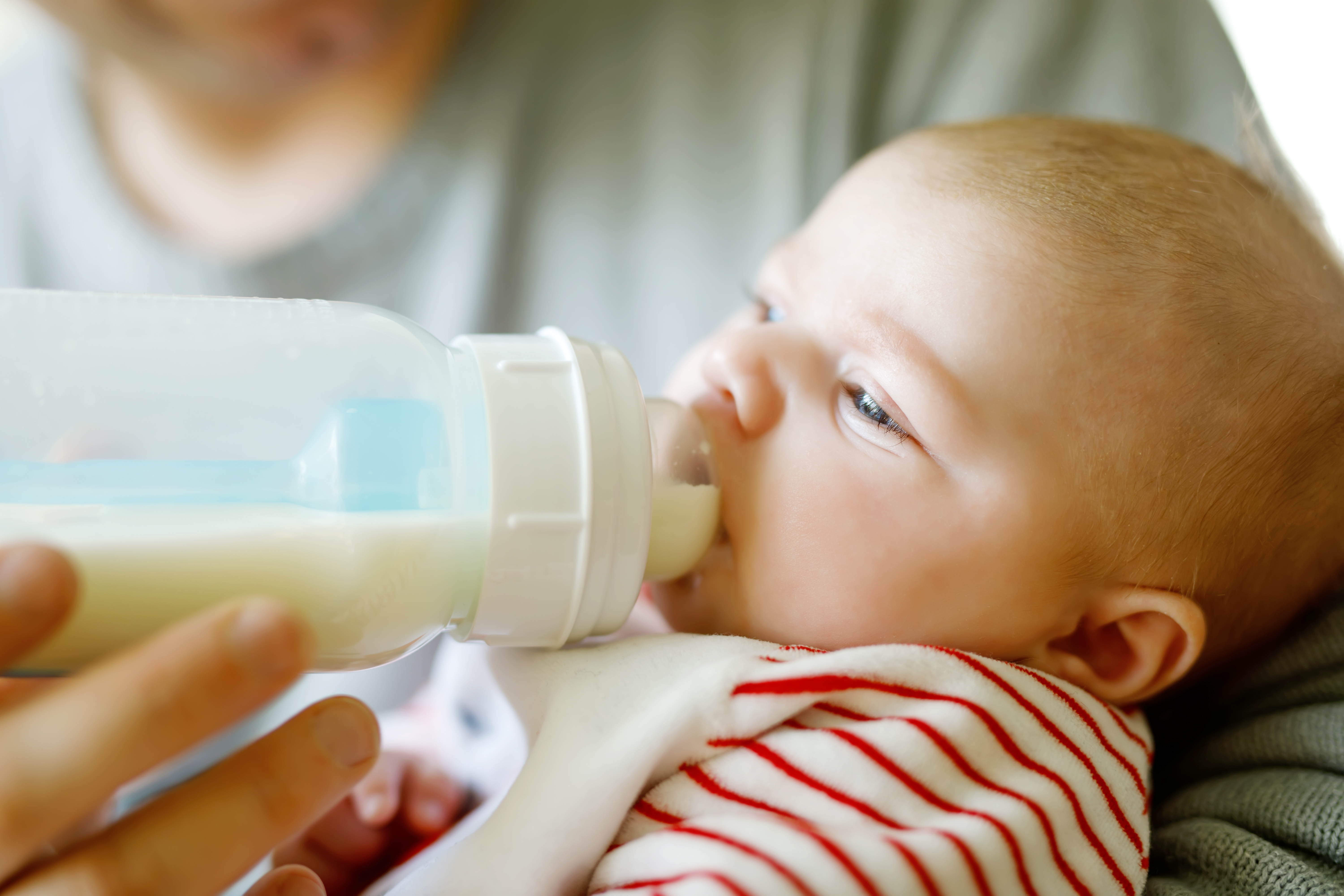
THE high cost of infant formula in the UK is having a significant impact on some family budgets and poses a potential risk to child health, an inquiry by MPs has found.
Research is urgently needed into the potential for unsafe infant formula use in low income and vulnerable families and the potential risks this may pose to short and long term child health, the All-Party Parliamentary Group (APPG) on Infant Feeding and Inequalities said.
Parents and health care professionals told the inquiry that they or families they knew often went without essential items in order to be able to afford infant formula.
It heard that families on tight budgets could resort to unsafe practices in order to feed their babies, such as skipping feeds, watering down formula or adding cereal.
The price of formula could range from £6.44 to £13.52 per week for powdered varieties and between £24.47 and £32.20 for ready-to-feed products.
But the report said marketing and advertising had a significant influence on families’ choice of infant formula in spite of the fact that all infant formula must have a composition that conforms to UK regulations.
One parent told the inquiry: “Formula is incredibly expensive, we struggled at times when we reached the end of my maternity pay.”
Another said: “We are both professionals in public sector jobs, I imagine it’s almost impossible for low income families to cope with the costs. Families will be buying formula with the food shop and it will inevitably be affecting how much they can pay for food.”
The report recommends that the Government should set up an independent body to regularly review data on infant feeding in the UK and work across departments to ensure that the needs of infants are considered in any changes to welfare, immigration rules, benefits and health and social care services.
It also calls for the International Code of Marketing of Breastmilk Substitutes to be brought into UK law to remove advertising of breastmilk substitutes to the general public and to ensure that health services are free from conflicts of interests.
And it says public health messaging is needed to make it clear that there is no significant nutritional difference between brands of first infant formula and that they must all conform to the same compositional regulations.
Dr Helen Crawley, director of the First Steps Nutrition Trust and author of the report, said: “There are many different types of infant formula marketed for babies and young children, which can be very confusing when you see them on the supermarket shelf, but the information you need as a parent or carer is really quite simple.
“The majority of infants who are formula-fed should be given a first infant milk throughout their first year.
“Due to UK regulations all first infant milk, regardless of brand or price, must conform to the same compositional regulations.”
The APPG’s chairwoman Alison Thewliss said: “We need to make sure parents are protected from misleading marketing and advertising and can access impartial, trusted information.
“For too long, powerful multi-national companies have been pushing the boundaries and circumventing existing legislation to promote their products to parents and families.
“The more we see new aggressive marketing techniques, the more we see ever higher prices for formula milk, which is ultimately borne by the consumer.
“We urgently need more research and investigation to find out what is happening nationally with infant feeding practices where food insecurity is already known to be a serious issue.”
Sue Ashmore, Unicef UK Baby Friendly Director, said: “Infant formula is extremely expensive and can be a significant proportion of a family’s weekly food budget.
“In a period where the cost of living has increased, but the wages in people’s pockets and healthy start vouchers have not kept pace, families are making difficult choices of going without in order to feed their children.
“This also sits in the context of cuts to community groups, children’s centres and breastfeeding support projects. Families need access to reliable sources of information as well as continued face-to-face support in order to make the best decisions for feeding their babies.”

Enjoy the convenience of having The Sunday Post delivered as a digital ePaper straight to your smartphone, tablet or computer.
Subscribe for only £5.49 a month and enjoy all the benefits of the printed paper as a digital replica.
Subscribe